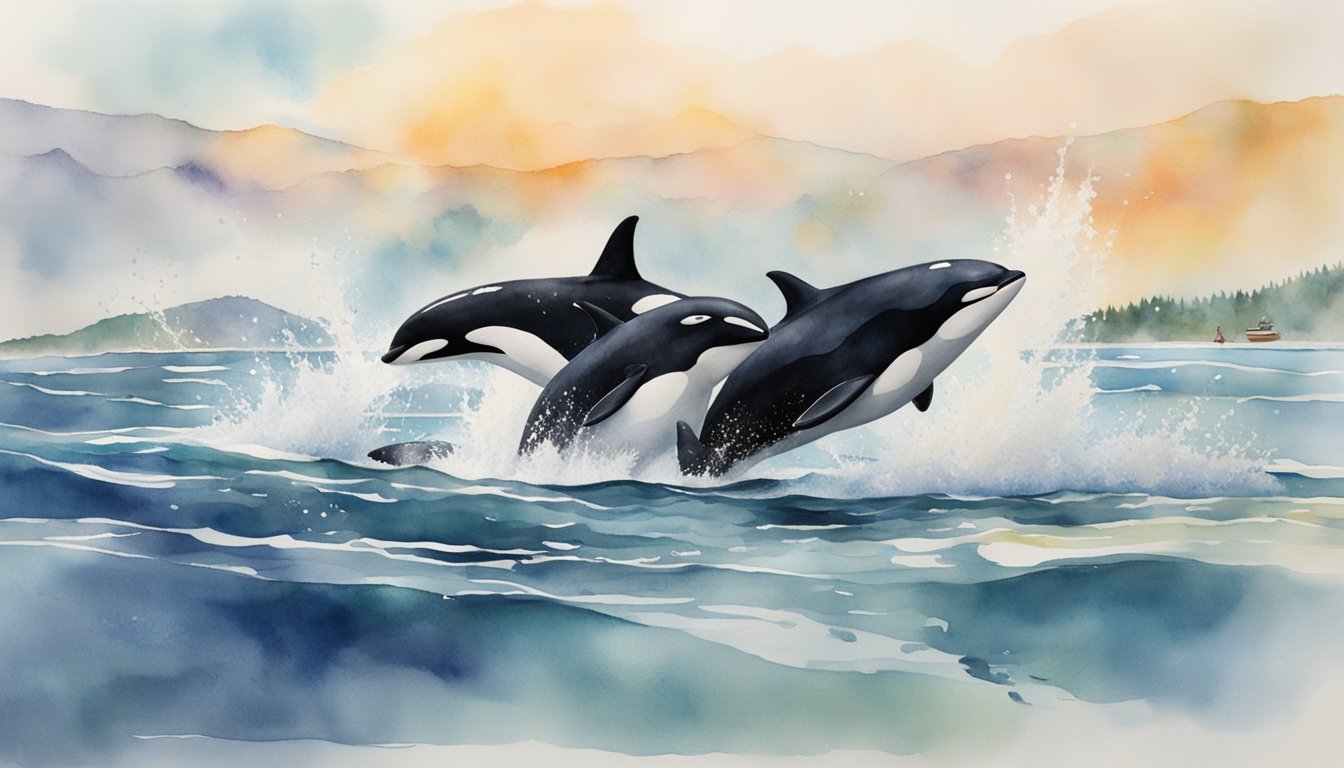Understanding Orcas and Their Diet
Killer whales, or orcas, are the largest predators in the ocean and renowned for their intelligence and hunting prowess. Contrary to popular belief, orcas do not generally pose a threat to humans. Although their diet consists of a variety of marine animals, humans are not part of their natural diet.
The diet of orcas varies depending on their hunting habits and habitat. Fish, squid, and marine mammal species like seals and sea lions are all part of the varied diet of orcas. These whales are known for their complex feeding behavior, which often includes communication among members of their pod and collaborative hunting techniques.
Orcas can be categorized into two types: resident and transient. Resident orcas primarily feed on fish, with a strong preference for the fattest Chinook salmon, sometimes allowing an entire school of skinnier salmon to swim by unharmed. Transient orcas have a more diverse diet, which includes seals, sea lions, and even other marine mammals like gray whales. Interestingly, transient orcas have also displayed selective eating behavior by killing a gray whale but consuming only its tongue.
In captivity, the diet of orcas becomes significantly different. Captive orcas like Tilikum, who gained notoriety at SeaWorld, are fed a diet of fish provided by their trainers. However, this diet falls short of the complex prey interactions and collaborative hunting techniques that wild orcas experience.
Orcas have also been observed feeding on penguins, sea birds, and various other marine animals. Their dorsal fin, which can grow up to 6 feet in length in males, helps them navigate through the water and sneak up on their prey.
In conclusion, while orcas are top predators in the marine environment, they do not pose a threat to humans. Their diverse diet and complex feeding behaviors make them fascinating creatures to study and observe, both in captivity and in the wild.
Interactions Between Orcas and Humans

Orcas, also known as killer whales, are considered an apex predator, meaning they are at the top of their food chain. Despite this powerful status, interactions between orcas and humans are surprisingly rare[^1^]. Interestingly, there are no records of orca ever hunting and killing humans in the wild(source). This lack of aggression toward humans has led many to question why these magnificent animals do not view us as prey.
When orcas are in captivity, their behavior may change. A tragic example occurred in 2010, when an orca named Tilikum killed SeaWorld trainer Dawn Brancheau in Orlando, Florida(source). However, such incidents are not indicative of orcas’ behavior in the wild. It is believed that factors such as boredom, stress, and an unnatural environment in captivity can lead to aggressive actions carried out by orcas.
In the ocean, orcas are known to prey on large marine mammals like seals, sea lions, and even larger whale species(source). In some cases, orcas have been known to display curiosity or playfulness around humans, such as surfers in California or boaters in various parts of the world. However, these interactions are generally non-threatening to people and can be interpreted as an expression of the orcas’ intelligence and sociable nature.
Researchers have discovered that orcas exhibit different behaviors and ways of communicating depending on their specific pod. Pods of orcas have even been observed participating in “greeting ceremonies” and what appear to be funerals(source). This diversity in behavior across orca populations could be one of the reasons why they do not target humans as prey.
In conclusion, the relationship between orcas and humans is complex. While they are imposing and powerful creatures, orcas in the wild do not pose a significant threat to humans. When we encounter orcas in their natural habitat, it is important to respect their space and observe them from a safe distance to minimize the risk of interference and potential aggression(source).

